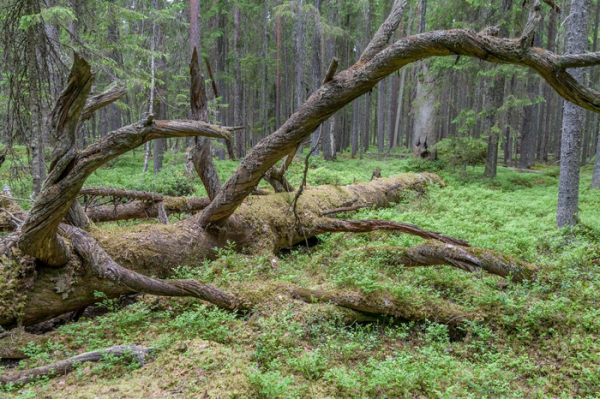Forests contribute to human well-being by providing a wide variety of ecosystem services to the society. The boreal biome is experiencing rapid changes both with the highest rates of warming on the planet and continued increase in demand for forest products. It is a real challenge to manage and adapt boreal forests to future warmer conditions and growing demands of forest products. A new study published in Global Change Biology explores the relative importance of forest management and climate change on the supply of ecosystem services and if the importance of these two drivers varies among biogeographical zones.
The study, led by researchers from the University of Jyväskylä, used forest growth simulations to project forest dynamics in Finland 100 years into the future (2016–2116). This study estimated the potential supply of eight forest ecosystem services given seven management regimes and four climate change scenarios.
According to the results, the effects of management on the future supply of forest ecosystem services were, on average, 11 times higher than the effects of climate change across all services, but greatly differed among them (from 0.53 to 24 times higher for timber production and cowberry yield, respectively). Intensive forest management for timber production will have an overall negative effect on the ecosystem services provision (in five out of seven of the non-timber services evaluated), especially for forest biodiversity. On the contrary, climate change will have an overall positive effect on the ecosystem services provision (in six out of eight of the services evaluated). Climate change effects will increase with greenhouse gas concentration and be larger in northern Finland.
Read more at: University of Jyvaskyla
Deadwood in a Finnish forest. (Photo Credit: University of Jyvaskyla)


